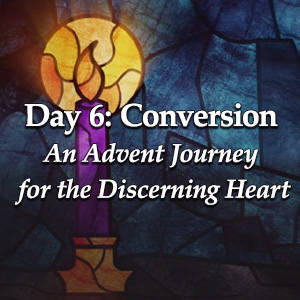Podcast: Play in new window | Download (Duration: 5:45 — 4.1MB) | Embed
Subscribe: Apple Podcasts | Spotify | Amazon Music | Android | Pandora | iHeartRadio | JioSaavn | Podchaser | Gaana | Podcast Index | Email | TuneIn | Deezer | Anghami | RSS | More
An Advent Journey for the Discerning Heart:
Prepare your heart for Christ through Scripture, the saints, and the gentle practice of daily listening.
Week Two: Following the Voice of Christ
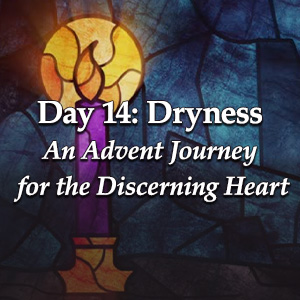 DAY 14 – Dryness
DAY 14 – Dryness
“O God, thou art my God, I seek thee, my soul thirsts for thee; my flesh faints for thee, as in a dry and weary land where no water is.”
Psalm 63.1 RSV
Dryness is one of the most common and most misunderstood experiences in the spiritual life. It is the season when prayer feels flat, when God seems distant, and when the heart feels unable to respond with its usual warmth. Advent does not hide this reality. It teaches us to listen through it.
Dryness is not abandonment. It is not punishment. Dryness is often the moment when God invites us to love Him with purity rather than feeling. When the heart no longer leans on emotion, it learns to lean on faith. When prayer no longer feels easy, we discover whether we truly desire God or only the comfort His presence brings.
Dryness has a purpose. It strengthens fidelity. It clarifies intention. It deepens trust. It teaches the soul to stay with Christ even when the path feels dark or barren. In these moments, the discerning heart remains steady, not because it feels God, but because it chooses Him.
God often speaks quietly within dryness. His voice becomes gentle and small. To listen in dryness is to stay at His side even when the way is not clear.
Journey with the Saints –
St. Teresa of Calcutta
“I look and do not see, listen and do not hear.”
From her private letters, Come Be My Light
St. Teresa of Calcutta endured decades of interior dryness while continuing to radiate charity. Her letters reveal a profound experience of feeling the absence of God while living a life completely anchored in Him. She continued to pray, to serve, and to choose love even when she felt no consolation at all.
For St. Teresa, dryness became a participation in the thirst of Christ. She believed that remaining faithful in dryness was itself an offering of love. Her fidelity in prayer did not flow from emotion. It flowed from trust. She teaches us that in dryness, God invites the soul to cleave to Him in a deeper and more selfless way.
St. Teresa’s witness shows that holiness does not depend on how we feel. It depends on how we love, especially when the heart feels nothing in return.
Reflection for the Listening Heart
Today invites you to acknowledge the times when prayer feels empty or when God seems far away. Dryness reveals how easily the heart relies on feelings rather than faith. Yet dryness is often the place where the deepest spiritual growth happens, because it calls the soul to choose God for His sake alone.
You do not need to fix dryness. You only need to remain in it with Christ. He is with you even when you feel nothing. He is closer than you know. Dryness becomes holy when it is offered in love and when it teaches the heart to persevere gently and faithfully.
Ask yourself: How is Christ inviting me to remain with Him in dryness today. What small act of fidelity can I offer even when I feel nothing.
A Simple Practice for Today
Spend one quiet minute saying, “Lord, I choose You.” Let this be your offering in dryness. Later in the day, repeat the same prayer slowly, without pushing for feeling or clarity. Let it be a simple act of fidelity.
Prayer
Lord Jesus, be with me in dryness. When my heart feels empty, remain near. Teach me to choose You even without consolation. Strengthen my faith so I may love You with a steady heart. Help me to stay close to You in this quiet place where You work in hidden ways. Amen.
For more of the episodes of
An Advent Journey for the Discerning Heart with Kris McGregor visit here
Citations for Day 14
Psalm 63.1 RSV
St. Teresa of Calcutta, Come Be My Light (private letters)
© Discerning Hearts. All rights reserved.

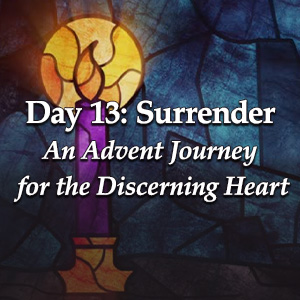 DAY 13 – Surrender
DAY 13 – Surrender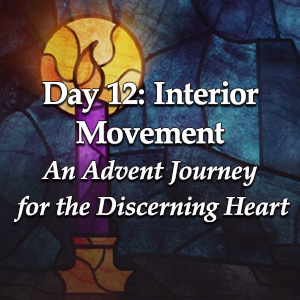 DAY 12 – Interior Movement
DAY 12 – Interior Movement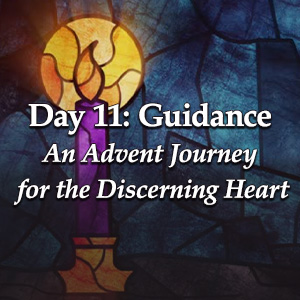 DAY 11 – Guidance
DAY 11 – Guidance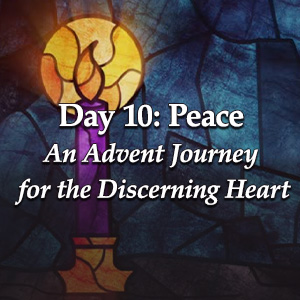 DAY 10 – Peace
DAY 10 – Peace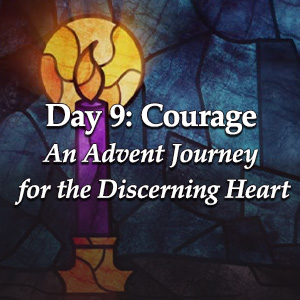 DAY 9 – Courage
DAY 9 – Courage
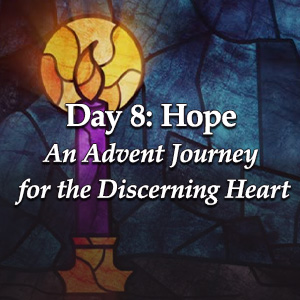 DAY 8 – Hope
DAY 8 – Hope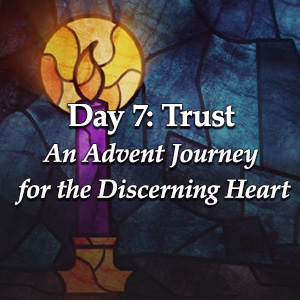 DAY 7 – Trust
DAY 7 – Trust